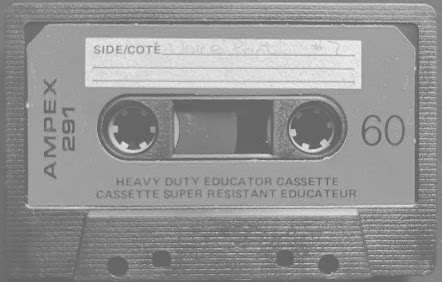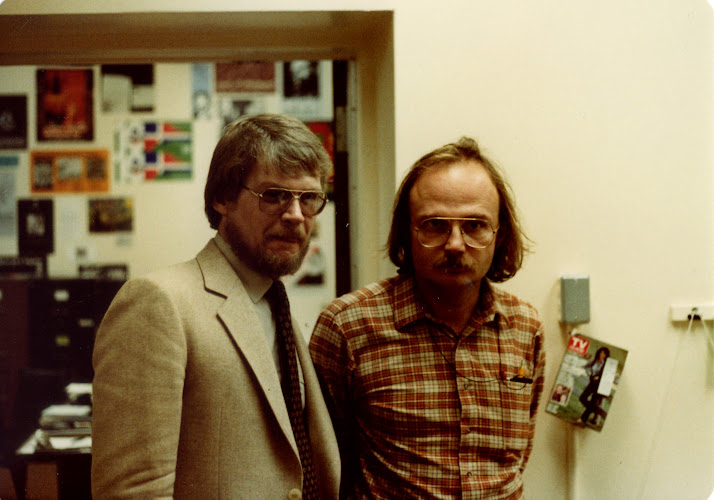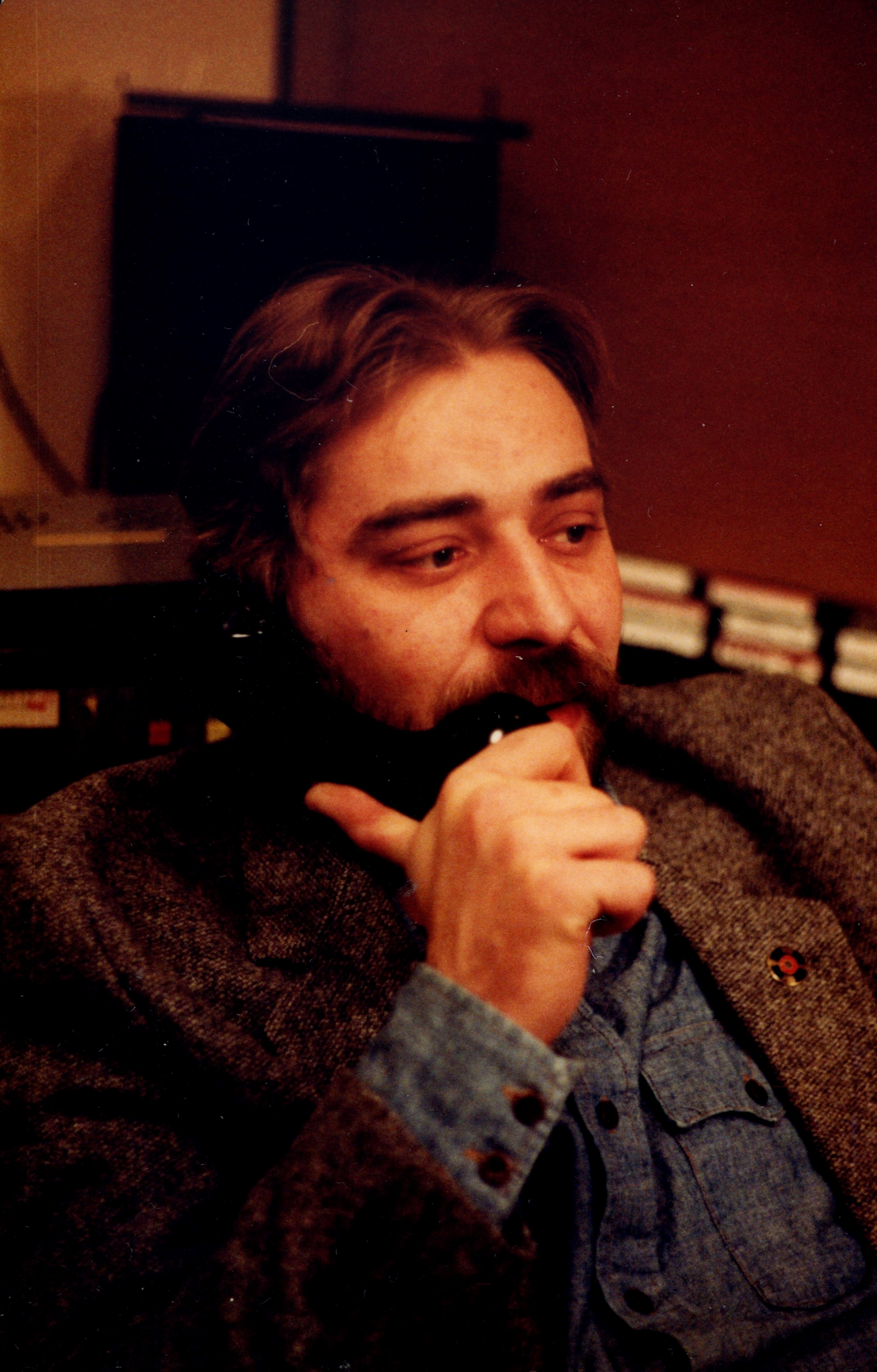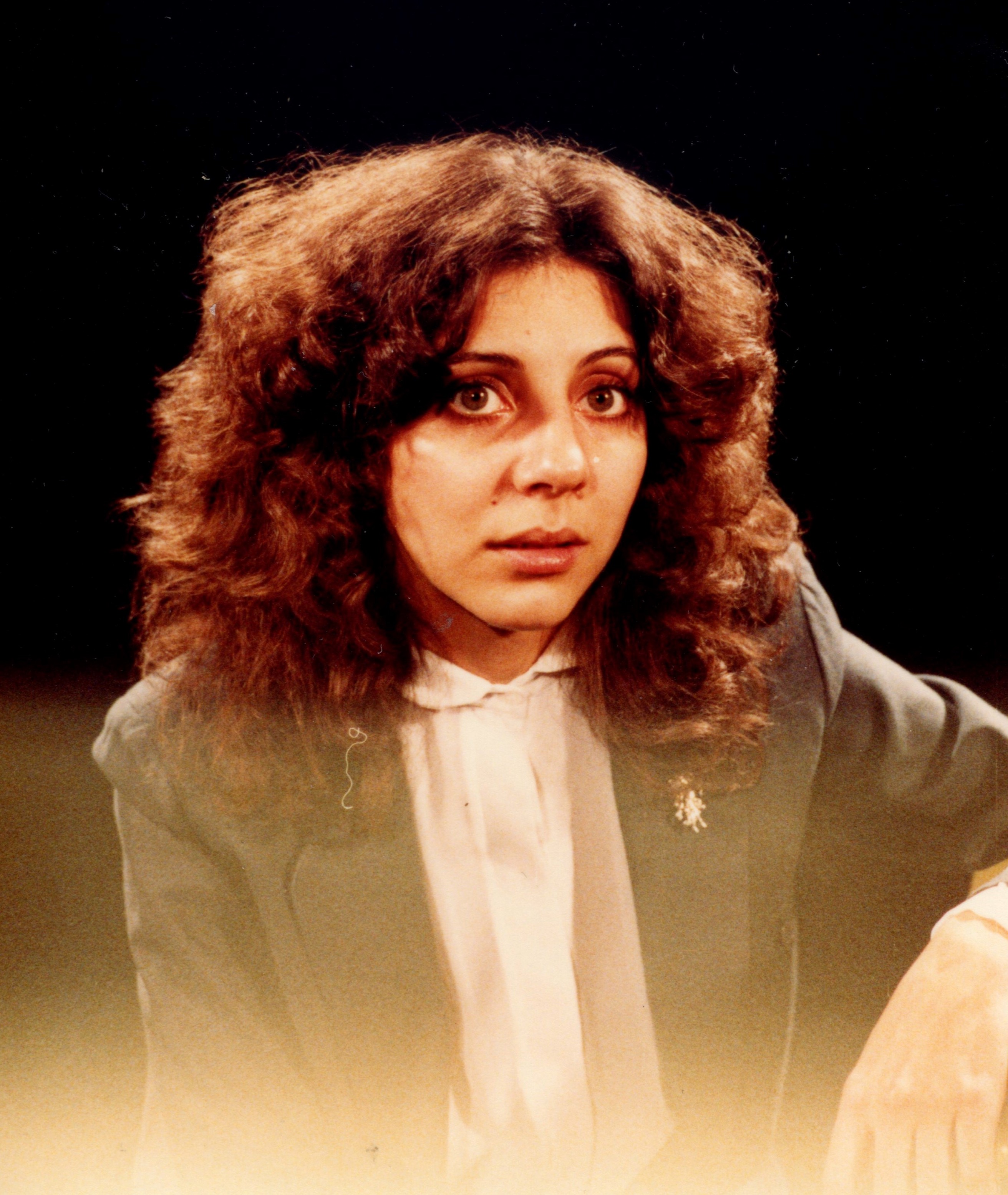
Voiceprint: Speech, Language, Communications Technology, and Literary Arts in a Changing World was a University of Alberta campus radio show that aired on CKUA from 1980 to 1983 (UAlberta Archives, No. 88-47). The series was created and hosted by then-masters student Jars Balan. Terri Wynnyk, a political science student, was the production assistant. Notable guests included: Stephen Scobie, Douglas Barbour, Ann Cameron, and Margaret Atwood.
Balan was recruited to work on the show by Roman Onufrijchuk, executive producer of The University of Alberta’s Department of Radio and Television. At the time, CKUA had signed a new licensing deal with the Alberta Educational Communications Corporation (ACCESS). As such, the station was eager for educational programming.12

The series creators’ prided themselves on the shows interdisciplinarity. Jars recruited faculty and staff from various departments—including linguistics, anthropology, and library studies—to lend their expertise and their voices to the series. Ana Altman, who went on to become Director of UAlberta’s School of Library and Information Science, contributed a recurring segment on recommended books, while classics scholar Richard Braun shared his etymology knowledge in a bit called “Words Worth.”3
The radio show’s “holistic” blend of communications theory, literary arts, and politics earned praise in the local media. The Edmonton Journal, quoting Onufrijchuk, likened the series to “Sesame Street for adults.”4 In the words of reviewer Myrna Kostash, “These programs are most assuredly not straightforward lectures, not a solitary patrician (male) voice droning on into the fog of the airwaves. Voiceprint is, in the jargon of electronic media, a magazine show. The format is the montage: many voices, recurring theme segments, a bit of music, readings, interviews.”5

Radio historians Erika Engstrom6, Caroline Mitchell7, Susan Carter8, Stacey Copeland9, and others have pointed out the role of campus and community radio stations in building safe spaces for marginalized communities, particularly during the peak of alternative radio in the early 1980s. Along these lines, Voiceprint was notable for its progressive politics, particularly the producers’ unflinching and nuanced engagement with women’s issues, a topic that scholars Barbara Freeman and Susan Carter point out was often ignored on mainstream public and commercial stations. The episode “Women’s Language and Literature: A Room and Voice of One’s Own” digs into how misogyny becomes normalized through our language habits. Poet Ann Cameron, in an interview with Balan, describes her frustration with being labeled a “masculine” writer, pointing out how feminized versions of titles, like “poetess,” are used to condescend to and diminish women who participate in male-dominant spheres.10
Reflecting on Voiceprint’s forward-thinking politics, Balan explained that he was not just a radio host but an activist and a “proud feminst[s].”11 While producing the series, he and show contributor Anna Altman organized literary readings at the Edmonton feminist bookstore Erewhon Books. Wynnyk, the “tech guru” of the Voiceprint team, has in turn spoken about the challenges of being a woman in traditionally male fields like radio and film and television.1213

Voiceprint came to an abrupt end in 1983, after the final episode was “banned” by CKUA. The episode, “Linguistic Taboos and Censorship in Literature,” included a clip from comedian George Carlin’s infamous sketch, “Seven Words You Can Never Say on Television.” According to CKUA, the airing of “swear words” violated the station’s decency rules (Remington). In an interview with The Edmonton Journal, show producer Ken Bolton decried CKUA’s “cowardly” decision to take the show off the air.14 Yet, looking back on the incident years later, Balan conceded that it was “better to go out with a bang.”15
The SpokenWeb Podcast episode “Academics on Air,” released on May 2nd, 2022, explores Voiceprint’s innovative approach to public, community-focused scholarship.16 The podcast producers, Nick Beauchesne, Chelsea Miya, and Ariel Kroon, describe how they “rediscovered” the literary radio series during the process of digitizing the University of Alberta Archives’ radio collection. While their research initially focused on the series’ literary guests, the trio were impressed with the Voiceprint’s unique format and experimental sound design, all the more so because the show was a grassroots project, created and produced by students. As Kroon says in the podcast, the University of Alberta SpokenWeb team have become “fans” of the show. With the digitization of the collection, we hope that the series will continue to find new listeners.
Notes
Fig. 1. Photograph of Voiceprint recording on Ampex. SpokenWeb UAlberta Archives.
Fig. 2. Photograph of RTV Producer Ken Pappes and Host Jars Balan. 198-. Courtesy of Terri Wynnyk, from her personal collection.
Fig. 3. Photograph of Roman Onufrijchuk, Executive Producer of RTV. 198-. Courtesy of Terri Wynnyk, from her personal collection.
Fig. 4. Photograph of Terri Wynnyk, Production Assistant at RTV. 198-. Courtesy of Terri Wynnyk, from her personal collection.
-
Fauteux, Brian. “The Canadian Campus Radio Sector Takes Shape.” Music in Range: The Culture of Canadian Campus Radio. Wilfrid Laurier University Press, 2015, pp. 37-64. ↩︎
-
Kirkman, Jean. “CKUA: Fifty years of growth for the university’s own station.” University of Alberta Alumni Association: History Trails, March 1978, https://sites.ualberta.ca/ALUMNI/history/affiliate/78winCKUA.htm. ↩︎
-
Kroon, Ariel, Nick Beauchesne, and Chelsea Miya, producers. “Academics on Air.” SpokenWeb Podcast, season 3, 2 May 2022, https://spokenweb.ca/podcast/episodes/academics-on-air/. ↩︎
-
Kostash, Myrna. “Book View.” The Edmonton Journal, 17 Jan. 1981, p. H4. ↩︎
-
Ibid. ↩︎
-
Engstrom, Erika. “Alternative Feminist Media on the Airwaves: Radio and Women’s Music.” Journal of Radio & Audio Media, vol. 17, no. 1, 2010, pp. 18-32, DOI: 10.1080/19376521003719383. ↩︎
-
Mitchell, Caroline. “Re-Sounding Feminist Radio : A Journey through Women’s Community Radio Archives.” Feminist Media Histories, vol. 1, no. 4, Oct. 2015, pp. 126–43. ↩︎
-
Carter, Susan. “A Mic of Her Own: Stations, Collectives, and Women’s Access to Radio.” Journal of Radio Studies, vol. 11, no. 2, Winter 2004, pp. 169-183. ↩︎
-
Copeland, Stacey. “Voices Pt. 2: The Sound of My Voice” [podcast]. The Phantom Pod, 10 March 2022, http://phantompod.org/2022/03/10/ep-35-voices-pt-2-the-sound-of-my-voice-stacey-copeland/. ↩︎
-
Balan, Jars. Host. “Women’s Language and Literature: A Voice and a Room of One’s Own.” Voiceprint. Dept. of Radio and Television and CKUA, 4 March 1981. ↩︎
-
Balan, Jars, and Terri Wynnyk. Interview. “SpokenWeb Podcast Listening Party: Season 3 Episode 8 – Academics On Air.” The SpokenWeb, 2 May 2022, https://spokenweb.ca/events/spokenweb-podcast-listening-party-season-3-episode-8-academics-on-air/. ↩︎
-
Kroon, Ariel, Nick Beauchesne, and Chelsea Miya, producers. “Academics on Air.” SpokenWeb Podcast, season 3, 2 May 2022, https://spokenweb.ca/podcast/episodes/academics-on-air/. ↩︎
-
Wynnyk. “Listening Party.” ↩︎
-
Remington, Bob. “Banning of Radio Show Called Cowardly.” The Edmonton Journal, 26 May 1983, p. F6. ↩︎
-
Kroon, et al. ↩︎
-
Ibid. ↩︎

